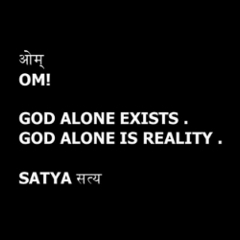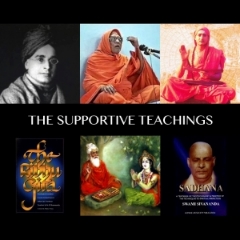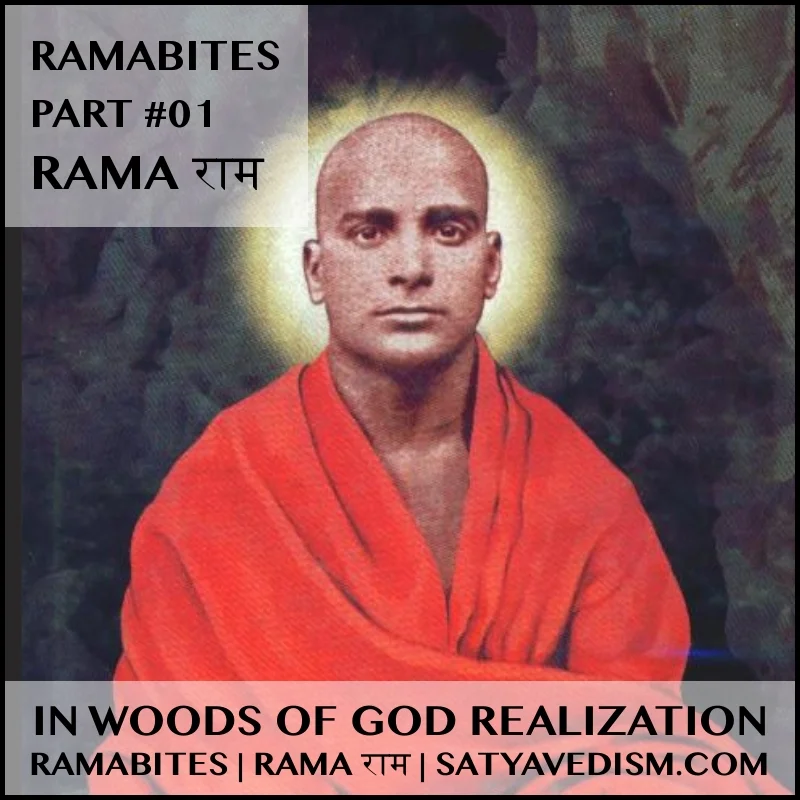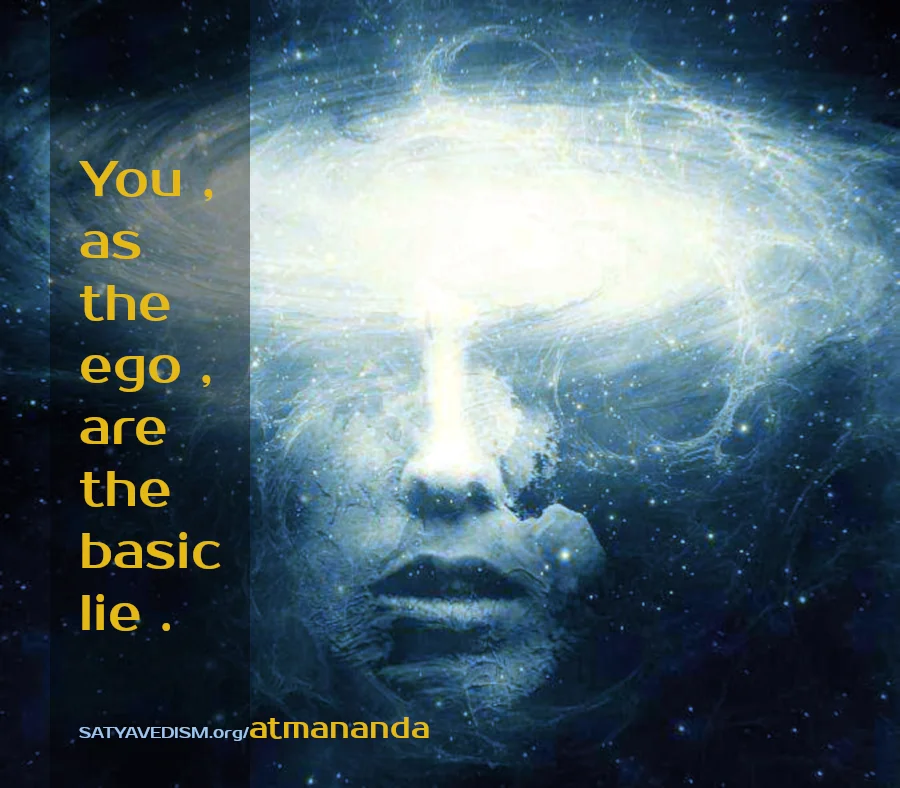BHAGAVADGITA | 13.2 | PT 3 | AMOETD
| | homeBHAGAVADGITA | 13.2 | SRI ADI SANKARACARYA
|| BHAGAVADGITA | 13.2 | PART 3 OF 3 ||
OBJECTION : May it not be that the scriptures will become meaningless when , by noticing abstention from action in the case of those with discrimination , their followers too will abstain ?
REPLY : No , because discrimination arises in some rare person only . For , as at present , some rare one among many people comes to possess discrimination .
Besides , fools do not follow one who has discrimination , because ( their ) engagement in action is impelled by defects such as attachment etc . And they are seen to get engaged in such acts as black magic .
Moreover , engagement in action is natural . Verily has it been said ( by the Lord ) ,
" But it is Nature that acts " . ( 5 . 14 )
Therefore , the mundane state consists of nothing but ignorance , and is an object of perception ( to the ignorant one who sees it ) just as it appears to one .
Ignorance and its effects do not belong to the Knower of the field , The Absolute . Moreover , false knowledge cannot taint the Supreme Reality .
For , water in a mirage cannot make a desert muddy with its moisture .
Similarly , ignorance cannot act in any way on the Knower of the field . Hence has this been said ,
" And understand Me to be knower of the field " , as also ,
" Knowledge remains covered by ignorance " . ( 5 . 15 )
OBJECTION : Then , what is this that even the learned say like the worldly people ,
" Thus * am I " ,
" This * verily belongs to Me " ?
REPLY : Listen . This is that learnedness which consists in seeing the field as the Self ! On the contrary , should they realize the unchanging Knower of the field , then they will not crave for enjoyment or action with the idea ,
" May this be mine " .
Enjoyment and action are mere perversions . This being so , the ignorant one engages in action owing to one's desire for results .
On the other hand , in the case of an enlightened person who has realized the changeless Self , engagement in action is impossible because of the absence of desire for results . Hence , when the activities of the aggregate of body and organs cease , one's withdrawal from action is spoken of in a figurative sense .
Some may have this other kind of learnedness :
" The Knower of the field is GOD Itself ; and the field is something different and an object of knowledge to the Knower of the field .
But I am a mundane being , happy and sorrowful . And it is my duty to bring about the cessation of worldly existence through the knowledge of the field and the Knower of the field , and by continuing to dwell in ITs true nature after directly perceiving through meditation GOD , the Knower of the field . "
And one who , understands thus , and one who teaches that
" one ( the taught ) is not the Knower of the field " , and one who , being under such an idea , thinks , " I shall render meaningful the scriptures dealing with the worldly state and Liberation "
— is the meanest among the learned .
That Self-immolator , being devoid of any link with the traditional interpreters of the purport of the scriptures , misinterprets what is enjoined in the scriptures and imagines what is not spoken there , and thereby , becoming deluded , befools others too .
Hence , one who is not a knower of the traditional interpretation is to be ignored like a fool , though one may be versed in all the scriptures .
As for the objection that , if GOD be one with the knower of the field , IT will then become a mundane being , and that , if the knowers of the fields are one with GOD , then from the nonexistence of mundane beings will follow the absence of the mundane state , — these two objections have been refuted by admitting Knowledge and ignorance as having different characteristics .
OBJECTION : How ?
REPLY : By saying that any defect imagined through ignorance does not affect the supreme Reality which is the substratum of that ( imagination ) . In accordance with this an illustration was cited that a desert is not made muddy by water in a mirage .
Even the defect of the possibility of nonexistence of the mundane state , consequent on the nonexistence of individual souls , stands refuted by the explanation that the mundane state and the individual souls are imagined through ignorance .
OBJECTION : The defect of mundane existence in the knower of the field consists in one's being possessed of ignorance . And sorrowfulness etc which are its products are matters of direct experience .
REPLY : No , since whatever is known is an attribute of the field , therefore the knower — the knower of the field — cannot reasonably be tainted by the defects arising from it . Whatsoever blemish — not existing in the knower of the field — you attribute to IT is logically an object of experience , and hence it is verily a quality of the field ; not the quality of the knower of the field .
Nor does the knower of the field become tainted thereby , because of knower cannot possibly have any conjunction with an object of knowledge . Should there be a conjunction , then there will be no possibility at all of its ( the latter's ) becoming a knowable .
Oh ! If being ignorant , sorrowful , etc be qualities of the Self , how is it that they are directly perceived ? Or how can they be qualities of the Knower of the field ?
If the conclusion be that all that is known constitutes the field , and that the one who knows is verily the knower of the field , then , to say that being ignorant , sorrowful , etc are the qualities of the knower of the field and that they are directly perceived is a contradictory statement having only ignorance as its basis .
OPPONENT : To whom does ignorance belong ?
REPLY : It belongs verily to one by whom it is experienced !
OBJECTION : In whom is it perceived ?
REPLY : Here the answer is : It is pointless to ask , " In whom is ignorance experienced ? "
OBJECTION : How ?
REPLY : If ignorance be perceived ( by you ) , then you perceive its possessor as well . Moreover , when that possessor of ignorance is perceived it is not reasonable to ask , " In whom is it perceived ? " For , when an owner of cattle is seen , the question , " To whom do the cattle belong " , does not become meaningful .
OBJECTION : Well , is not the illustration dissimilar ? Since , the cattle and their owner are directly perceived , their relation also is directly perceived . Hence the question is meaningless . Ignorance and its possessor are not directly perceived in that manner , in which case the question would have been meaningless .
REPLY : What will it matter to you if you know the relation of ignorance with a person who is not directly perceived as possessed of ignorance ?
OPPONENT : Since ignorance is a source of evil , therefore it should be got rid of .
REPLY : One to whom ignorance belongs will get rid of it !
OPPONENT : Indeed , ignorance belongs to myself .
REPLY : In that case , you know ignorance as also yourself who possess it ?
OPPONENT : I know , but not through direct perception .
REPLY : If you know through inference , then how is the connection ( between yourself and ignorance ) known ? Surely it is not possible for you the knower to have at that time * the knowledge of the relation ( of the Self ) with ignorance which is an object of knowledge ; * because the cognizer is then engaged in cognizing ignorance as an object .
Besides , there cannot be someone who is a ( separate ) cognizer of the relation between the knower and ignorance , and a separate cognition of that ( relation ) , for this would lead to infinite regress .
If the knower and the relation between the knower and the thing known be cognizable , then a separate cognizer has to be imagined . Of one , again , another knower has to be imagined ; of one again a separate cognizer would have to be imagined ! Thus , an infinite regress be comes unavoidable .
Again , whether the knowable be ignorance or anything else , a knowable is verily a knowable ; similarly , even a knower is surely a knower ; one does not become a knowable . And when this is so * , nothing of the cognizer — the knower of the field — is tainted by such defects as ignorance , sorrowfulness , etc .
OBJECTION : May it not be said that the ( Self's ) defect is surely this , that the field , which is full of defects , is cognized ( by IT ) ?
REPLY : No , because it is the Immutable , which is consciousness , by nature , that is figuratively spoken of as the cognizer .
It is just like figuratively attributing the act of heating to fire merely because of its ( natural ) heat .
Just as it has been shown here by the Lord Itself that identification with action , cause and effect are absent in the Self , and that action , cause , etc are figuratively attributed to the Self owing to their having been superimposed ( on IT ) through ignorance , so has it been shown by IT in various places :
" One who thinks of this One as the killer . . . " ( 2 . 19 ) ,
" While actions are being done in ever way by the gunas of Nature " ( 3 . 27 ) ,
" The Omnipresent neither accepts anybody's sin . . . " ( 5 . 15 ) , etc .
It has been explained by us , too , in that very way , and in the following contexts also we shall explain accordingly .
OBJECTION : Well , in that case , if identification with action , cause and effect be naturally absent in the Self , and it they be superimpositions through ignorance , then it amounts to this that actions are meant for being undertaken only by the ignorant , not by the enlightened .
REPLY : It is true that it comes to this . This very fact we shall explain under the verse ,
" Since it is not possible for one who holds on to a body . . . " ( 18 . 11 ) .
And , in the context dealing with the conclusion of the purport of the whole Scripture , we shall explain this elaborately under the verse ,
" . . . in brief indeed , O progeny of Kunti , . . . which is the supreme consummation of Knowledge " ( ibid 50 )
It is needless here to expatiate further , Hence we conclude .
( NOTES :
* See footnote on p . 5 , and p . 168 :
5 : A Sanskrit verse defines Bhagavan thus : " IT is spoken of as Bhaga-van who is aware of creation and dissolution , future prosperity and adversity , ignorance and Illumination of all beings " ( VP 6 . 5 . 78 ) .
168 : Gain and loss stand for future prosperity and adversity . ||
* If it be held that objects of experience may be superimposed on one another , but they cannot be superimposed on the experiencer , the answer is that this cannot be a universal proposition . For decrepitude and death , which are matters of experience , are superimposed on the Self , the experiencer . ||
* Etc : false perception and doubt . ||
* It is known through the process of agreement and difference that false perception etc arise from some defects , and they are not the qualities of the Self . ||
* Natural relationship — Self-identification with the body through ignorance . ||
* In the Br . ( 1 . 5 . 17 ) we read , " Now therefore the entrusting : When one thinks one will die , one says to one's progeny ,
' You are Brahman , you are the sacrifice , and you are the world ' " , etc .
It has been enjoined here in this manner that the progeny should accept as one's own all the duties thus entrusted to one by the parent . Similarly , it is understood that when progeny in unable to perform one's own duties , the parent has to accept them . So also in the case siblings and others .
Thus , in the case of the enlightened person also , though there is a comprehension of one's own distinction from effect and cause , still , owing to one's earlier relationship with ignorance , body , etc , there is no contradiction in one's understanding that the injunctions and prohibitions are meant for one . ||
* In BS ( 3 . 4 . 26 - 7 ) it is said that the merit earned by the performance of scriptural duties helps to generate knowledge of Brahman . Therefore these duties are not meant for the enlightened .
( By following what is enjoined , and avoiding what is prohibited , one's mind becomes purified , and then only one understands one is different from cause and effect — agentship and enjoyership . — TR ) ||
* Possessed of aristocracy etc ||
* Body , spouse , etc ||
* " When you are knowing your own ignorance . " ||
* " After having perceived ignorance as an object of your knowledge , how can you who continue to be the knower cognize yourself as the knower of that ignorance ? For this would lead to the contradiction of the same person becoming the subject and the object of cognition . " ||
* Since the knower cannot be known , therefore one's relation with ignorance also cannot be known by oneself or by anybody else . )
|| UPADESA SAHASRI : A METHOD OF ENLIGHTENING THE DISCIPLE || I.I.6 || COMPLETE AMOETD SERIES ➤➤ | INTRODUCTION ➤➤ ||
|| THIS SCRIPTURE SERIES SOURCE || ➤
|| 1 || http://www.SATYAVEDISM.com ||
|| 2 || http://bit.ly/SRIADISHANKARA ||
http://www.SATYAVEDISM.com/shankara/amoetd/
SOURCE | SATYAVEDISM.ORG



































































































